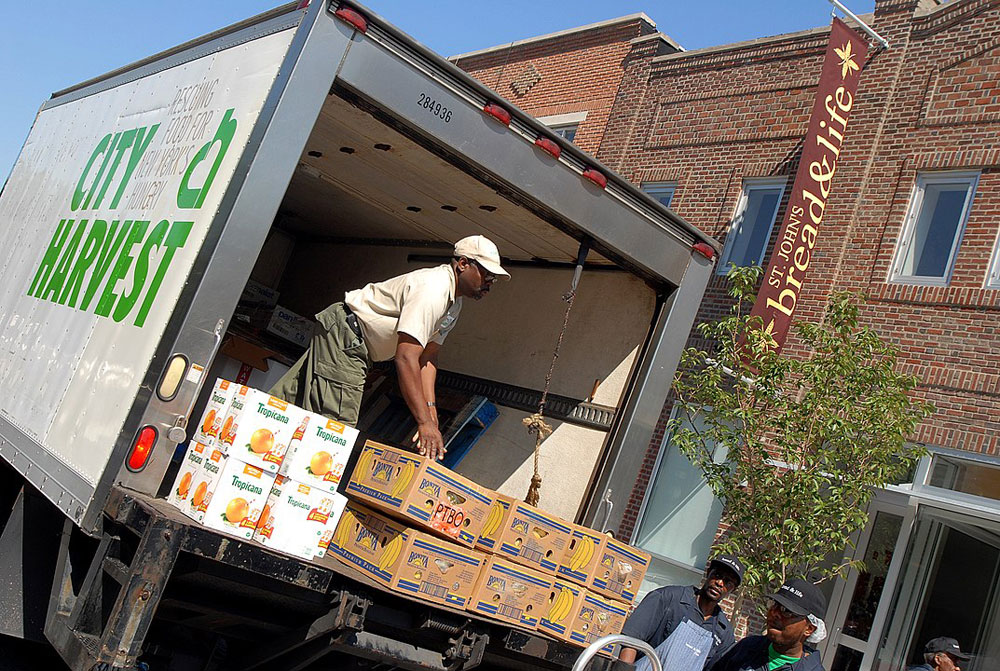
September 10, 2019; Next City
A recent Next City article asks a compelling question: “Can cities ever eliminate hunger?” Decades of work on hunger and food insecurity make one point abundantly clear—if providing food were the solution, hunger would have been solved by now.
Yet, in spite of practically universal agreement that access to food is a basic human right, we have barely moved the needle on addressing food insecurity in the last quarter-century. In light of a new report in New York City, “Growing Food Equity in New York City, A City Council Agenda,” Next City takes a closer look at how NYC plans to grapple with food insecurity, and compares its approach with two other major cities: Los Angeles, California, and Boise, Idaho.
While commendable that New York is taking steps to address food insecurity, their recent report is criticized for its silo approach, which essentially focuses on treating the symptoms of food insecurity rather than the causes. For instance, the report calls for policy that pours funding into stopgap measures such as food pantries and soup kitchens yet does not address homelessness, discrimination, and gentrification, which are known to cause food insecurity. The report does give a nod to the historical and systemic causes of food insecurity, but the policy it lays out seems to ignore the more holistic picture of hunger and its root causes—“affordable housing, systemic racism, systemic classism, and access to affordable, healthy food.”
Dr. Mariana Chilton, a professor of public health at Drexel University, offers a critical review of the Agenda. “You cannot take on poverty and hunger without taking on historical and contemporary discrimination.…If we are just fighting to strengthen SNAP…we’ll make little progress. We have to go deeper to the root causes.”
The Los Angeles approach goes a little bit deeper by approaching food policy from a values-based perspective. The Good Food Purchasing Program works with large institutions to help implement food procurement that is in line with their five values- animal welfare, environmental sustainability, local economies, nutrition, and a valued workforce.
Sign up for our free newsletters
Subscribe to NPQ's newsletters to have our top stories delivered directly to your inbox.
By signing up, you agree to our privacy policy and terms of use, and to receive messages from NPQ and our partners.
By aligning business processes with a set of shared values, as opposed to enforcing policy, L.A. has made some significant progress. For instance, the public school system has increased wages, created jobs, and invested millions of dollars into the local food economy. All of these results address problems that go deeper than serving food. With higher wages and new jobs, those who were previously unemployed or who did not earn an adequate salary could now, in theory, afford to purchase healthy food options.
On the flip side, access to affordable housing is still a major issue in the L.A. area. Even with a decent-paying job, if the majority of that income goes toward paying rent, food insecurity is still an issue.
The last city discussed by Next City’s article is Boise. Boise is one of the fastest-growing cities in the country and, as such, has had to deal with a blossoming population and increasing housing prices. Boise has taken a more holistic approach to food insecurity by addressing policy, shared values, and living wages in addition to tackling “land use, housing, and transit.” The city has adopted urban farming, allowing residents to grow their own produce and sell or trade their products, and has even rezoned land to preserve urban farming.
A major part of their holistic approach is securing affordable housing and they are currently working on incentives as well as land trusts. Transportation will be the final piece of the puzzle for Boise which may prove to be the most difficult. Elaine Clegg, city council president pro tem, recognizes that transportation is an important part of any holistic approach. She says, “You can give people access to things with good transportation choices.” These “things” include access to healthy food options, as well as more job opportunities.
While Boise is in the process of putting together their data, their holistic approach seems promising. As much as they can, Boise has addressed the causes of food insecurity. Still, it is undeniable that food insecurity is a symptom of a multitude of root causes including systemic racism and classism, which none of these cities have been able to address.
Overall, the three approaches- policy, values-based, and holistic- demonstrate that in order to actually eliminate hunger, it will take a new mindset and coordination within communities. What is reassuring, though, is that these cities, and many others, have embraced the cause and are making progress.—Sheela Nimishakavi















